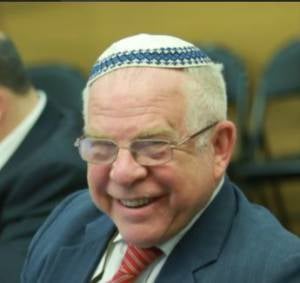The clear message to Netanyahu should be: You do not have to destroy a home because of a housing infraction.
This past Friday, June 14, in a front-page news story that headlined in the newspaper Makor Rishon, it was reported that the Israeli government had ignored the ruling issued by the Bagatz, the High Court of Justice, which forbid the Waqf, the Islamic Authority, from damaging the remains of antiquities unearthed on the Temple Mount in Jerusalem.
During Ramadan, Makor Rishon confirmed that the Waqf systematically destroyed artifacts discovered in massive rubble that it truck-loaded off the Temple Mount.
Despite the ruling of the Bagatz, the Israeli law enforcement system did nothing to stop the Waqf. Why?
That is because the Bagatz rulings are enforced in an arbitrary manner and often ignored by the Israeli government.
The government systematically ignores Bagatz enforcement in the Arab and Bedouin sector.
Yet the same June 14 edition of Makor Rishon quotes Chief Justice Esther Ohayon saying that she expects the government to enforce all rulings.
However, during the recent campaign to save 15 homes in the Netiv Ha’Avot community of Elazar, a senior government minister, Yariv Levin, advised the Israeli government to ignore the order to bulldoze Jewish homes.
Levin is a lawyer who served in a senior position in the Israel Bar Association before elected to the Knesset in 2009, and he knows how the law works.
Yariv advised activists to base their campaign on pressuring the government not to enforce the ruling.
Yet activists ignored Yariv Levin’s solid advice, and the campaigns to stop demolitions of Jewish homes mistakenly embraced the idea that the Bagatz in Israel is sacrosanct.
However, the entire Israeli legal system in Judea and Samaria operates under arbitrary military law.
Key decisions rest with the Israeli prime minister, who is responsible for the Israeli Security Agency, otherwise known as the Shabak, and the Israeli defense minister, who shares administrative responsibility with the PMO for the law enforcement system in Judea and Samaria.
Law Enforcement Depends on Pressure
In other words, law enforcement depends on how much pressure is placed on the prime minister from across the country and around the world, besides the affected population of Judea and Samaria, who constitute less than five percent of the population of Israel.
The way to apply pressure on the Israeli government to stop future destruction of Jewish homes in Judea and Samaria is for as many people as possible outside of Judea and Samaria, from all walks of life and from all over Israel and around the world, to send short, reasonable and personal messages to the prime minister asking him to ignore the Israel High Court of Justice.
The clear the message to the PMO should be: You do not have to destroy a home because of a housing infraction.
The Council of Jewish communities in Judea and Samaria, known as the Yesha Council, limits its outreach to 10% of the Jewish population in Israel – to the residents of Judea and Samaria and to the modern Orthodox Jewish communities in Israel – and makes no effort to influence Israeli public opinion, let alone world opinion.
The Yesha Council will not galvanize support behind Levin’s idea that the government should not enforce decisions of the Israel High Court of Justice, which defy common law, human rights and civil liberties of home owners.
While advocates of Jewish home demolitions in Judea and Samaria spread the false notion that the only way to protect Arab housing rights is to demolish homes of Jews, that claim can be easily countered in the public domain.
It is all a matter of systematic mass communication of public concern to the Prime Minister of Israel.
Do You Love Israel? Make a Donation - Show Your Support!
Donate to vital charities that help protect Israeli citizens and inspire millions around the world to support Israel too!
Now more than ever, Israel needs your help to fight and win the war -- including on the battlefield of public opinion.
Antisemitism, anti-Israel bias and boycotts are out of control. Israel's enemies are inciting terror and violence against innocent Israelis and Jews around the world. Help us fight back!




